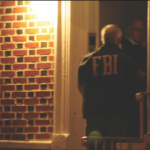Motion to Suppress Evidence Based on Illegal Search
Police cut corners and conduct searches every day without legal justification. Unfortunately, courts bend over backward to find a way not to hold them accountable.

If a Motion to Suppress is Denied, the Defendant May Appeal
United States Supreme Court recently reviewed a lower court’s decision to deny a Motion to Suppress Evidence based on an allegedly improper search by a police drug dog.
Although the following example comes from another state, issues involving violations of constitutional rights based upon searches for drugs by police dogs regularly arise in Michigan courts on both felony and misdemeanor drug charges. The top criminal defense attorneys handling criminal charges in Michigan stay abreast of the latest rulings on constitutional rights so that their clients receive the highest level of protection from prosecutors and judges.
The United States Supreme Court has agreed to hear the case of Dennys Rodriguez v United States of America. This case started as a traffic stop for veering off the shoulder of the highway and jerking back onto it. The officer that made the stop was a K-9 officer, and his dog Floyd was with him that night. The officer issued Rodriguez a written warning and then asked for permission to walk his dog around Rodriguez’s vehicle. Rodriguez denied consent and was ordered to exit his vehicle. He did and stood in front of the patrol car until a second officer arrived. A minute after the second officer’s arrival, Floyd was walked around the outside of Rodriguez’s car. The dog alerted to the presence of drugs approximately 20-30 seconds later. The time from the start of the stop to the dog alerting was seven to eight minutes. A search of the vehicle revealed a large bag of methamphetamine.
The federal district court denied Rodriguez’s motion to suppress based on improper search, holding that the delay caused by using the dog did not violate Rodriquez’s Fourth Amendment right to be free from unreasonable seizures. There was an appeal to the 8th Circuit Court of Appeals. The 8th Circuit Court of Appeals determined that the seven to eight-minute delay was a minimal intrusion of Rodriguez’s liberty. Mr. Rodriguez convinced the United States Supreme Court to hear his appeal.
How to Win a Motion to Suppress Based on an Improper Search
At LEWIS & DICKSTEIN, P.L.L.C., we are acutely aware of the pivotal role that a well-argued motion to suppress can play in the defense of our clients. Winning a motion to suppress evidence obtained through an improper search is not just about understanding the law; it’s about leveraging a comprehensive defense strategy that showcases our unique team approach. As one of Michigan’s top criminal defense law firms, our success is built on a foundation of deep legal expertise, collaborative strategy, and an unwavering commitment to our clients.
The first step in winning a motion to suppress is a thorough understanding of the Fourth Amendment, which protects against unreasonable searches and seizures. Our team of top criminal defense attorneys stays abreast of the latest legal precedents and understands the nuances of state and federal laws. This legal acumen enables us to identify when a search has overstepped legal boundaries, an essential skill in preparing a motion to suppress.

Leveraging a Team Approach to Fighting for the Suppression of Evidence
Our unique team approach to criminal defense sets LEWIS & DICKSTEIN, P.L.L.C. apart. This strategy involves several highly respected and influential criminal defense lawyers, alongside talented and seasoned paralegals, experts, and investigators. This collaborative effort ensures that every angle of the case is thoroughly explored. Our team meticulously reviews the details of the search, gathers evidence, and prepares compelling arguments that highlight the improper nature of the search.
Our firm’s success in motions to suppress is also due to our rigorous investigative process. Our investigators and experts play a crucial role in uncovering facts that support our argument against the legality of the search. Whether it’s demonstrating that law enforcement lacked a valid warrant, failed to follow proper procedure, or violated our client’s constitutional rights, our detailed investigation provides the foundation for a persuasive motion.
Exceptional Client Service and Fighting for Extraordinary Results
At LEWIS & DICKSTEIN, P.L.L.C., we believe in providing our clients with the highest possible level of service. This means being prompt and responsive with client communications and ensuring that our clients are informed and involved at every stage of the process. Our dedication to client service fosters trust, which is essential for a successful defense strategy.
Our ultimate goal is to achieve extraordinary results for our clients. Winning a motion to suppress based on an improper search can lead to the dismissal of charges or significantly weaken the prosecution’s case. Our firm is known for its aggressive and effective defense strategies that protect our clients’ rights and freedoms.

Attorneys Seeking Suppression Based on Improper Search and Seizure
As police departments continue to develop more “creative” ways to justify searches and seizures in violation of a person’s constitutional rights, it is vital to keep abreast of the current status of the law related to their use. The attorneys at LEWIS & DICKSTEIN, P.L.L.C. are recognized experts in constitutional law, its application to people charged with criminal offenses, and filing motions to dismiss charges or suppress evidence based on improper search or other 4th Amendment violations. Criminal law is the only area of the law that LEWIS & DICKSTEIN, P.L.L.C. attorneys practice.
Winning a motion to suppress evidence obtained through an improper search requires a combination of legal expertise, a collaborative team approach, detailed investigation, exceptional client service, and a relentless commitment to achieving the best possible outcome. At LEWIS & DICKSTEIN, P.L.L.C., we embody these principles in every case we handle, ensuring that our clients receive the unparalleled defense they deserve. Our track record speaks for itself, and we will continue to fight for the rights and freedoms of those we represent.
If you are facing state or federal criminal charges, please get in touch with LEWIS & DICKSTEIN, P.L.L.C. for a free consultation. We will put our expertise to work for you!
Call us today at (248) 263-6800 for a free consultation or complete an online Request for Assistance Form. We will contact you promptly and find a way to help you.












